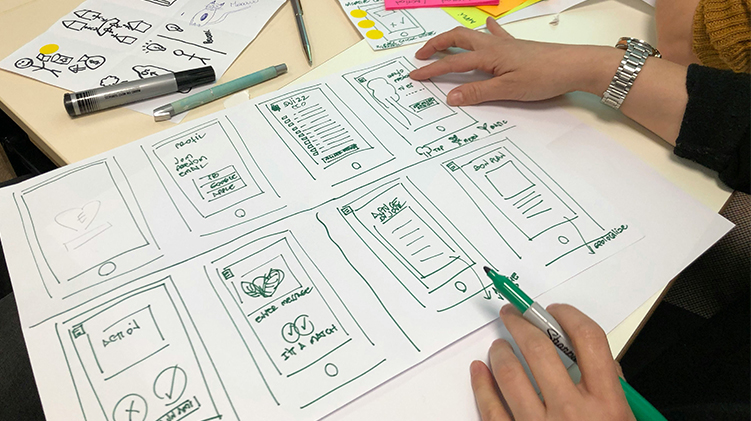

Mobile App Development: Essential Insights and Tools
Mobile applications have become an integral part of our daily lives, revolutionizing the way we communicate, work, and interact with the world around us. As businesses strive to stay ahead in this rapidly evolving landscape, understanding the nuances of mobile app development is crucial. In this comprehensive guide, we will explore the intricacies of mobile app development, including its definition, tools and technologies, programming aspects, and the process of creating a mobile app.
What is Mobile App Development?
Mobile app development refers to the process of creating software applications specifically designed to run on mobile devices such as smartphones and tablets. These applications can range from simple utilities and games to complex enterprise solutions, catering to various needs and preferences of users.
Mobile App Development Tools and Technologies
Tools:
- Top Mobile App Development Tools: Explore a curated list of leading tools used by developers to streamline the app development process, including platforms like Xamarin, Flutter, and React Native.
- Overview of Mobile App Development Tools: Delve into the diverse array of tools available for different stages of app development, from prototyping and design to testing and deployment.
- Popular Tools for Mobile App Development in 2018: Learn about the most sought-after tools in 2018, such as Android Studio, Xcode, and Visual Studio, and their key features and functionalities.
- Mobile Application Technology: Dive into the underlying technologies powering mobile applications, including native, hybrid, and cross-platform development approaches.
- Mobile Programming: Explore the programming languages and frameworks commonly used in mobile app development, such as Java, Swift, Kotlin, and JavaScript.
Technologies:
How to Make a Mobile App
Creating a mobile app involves a systematic approach encompassing various stages and processes:
- Define the Project: Identify the objectives, target audience, and features required for the app through thorough research and analysis.
- Choose Development Approach: Select the most suitable development approach based on factors like budget, timeline, and target platforms (iOS, Android, or both).
- Design User Interface (UI): Develop intuitive UI/UX designs that prioritize usability, accessibility, and visual appeal to enhance user experience.
- Develop Backend Functionality: Implement backend functionality, including data management, user authentication, and integration with external systems.
- Testing and Quality Assurance: Conduct comprehensive testing to ensure the app functions smoothly across different devices and scenarios, addressing any bugs or performance issues.
- Deployment and Maintenance: Deploy the app to relevant app stores (Google Play Store, Apple App Store) and establish processes for ongoing maintenance, updates, and enhancements.
Discover the Best 5 Mobile Development App Tools You Must Know in 2024
As the world of mobile app development continues to evolve at a rapid pace, staying abreast of the latest tools and technologies is essential for developers and businesses alike. In 2024, several cutting-edge mobile development app tools have emerged, revolutionizing the way apps are created and deployed. Let's explore the top 5 mobile development app tools that you must know in 2024:
- Flutter: Developed by Google, Flutter is an open-source UI software development kit that enables developers to create natively compiled applications for mobile, web, and desktop from a single codebase. With its expressive and flexible UI, Flutter has gained popularity for building beautiful and high-performance apps.
- React Native: Created by Facebook, React Native is a popular framework for building cross-platform mobile applications using JavaScript and React. It allows developers to write code once and deploy it across multiple platforms, saving time and effort while delivering a native-like experience to users.
- Xamarin: Developed by Microsoft, Xamarin is an open-source platform for building native Android, iOS, and Windows apps using C# and .NET. With Xamarin, developers can leverage shared code and libraries to accelerate development and create feature-rich applications.
- SwiftUI: Introduced by Apple, SwiftUI is a declarative framework for building user interfaces across all Apple platforms, including iOS, macOS, watchOS, and tvOS. It offers a modern and intuitive way to design UI components, making app development more efficient and enjoyable for developers.
- Kotlin Multiplatform: Kotlin Multiplatform is a cross-platform programming language developed by JetBrains, enabling developers to write shared business logic and UI code for Android, iOS, and other platforms. It promotes code reusability and interoperability while maintaining platform-specific optimizations
Conclusion
Mobile app development is a dynamic and rapidly evolving field, offering immense opportunities for businesses to engage with their target audience, drive innovation, and stay ahead of the competition. By understanding the fundamentals of mobile app development, businesses can leverage this technology to unlock new possibilities and achieve their goals.For professional assistance in mobile app development, consider partnering with Rishiraj Media. With expertise in creating custom mobile applications tailored to your unique requirements, they can help you navigate the complexities of the mobile app landscape and achieve success in the digital realm.